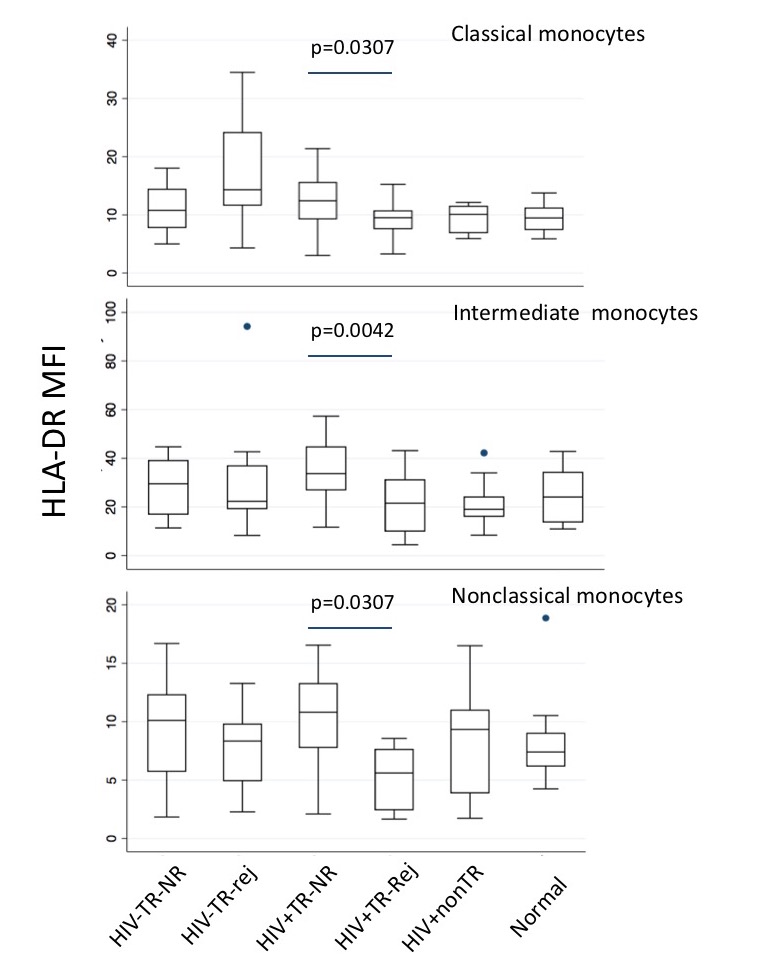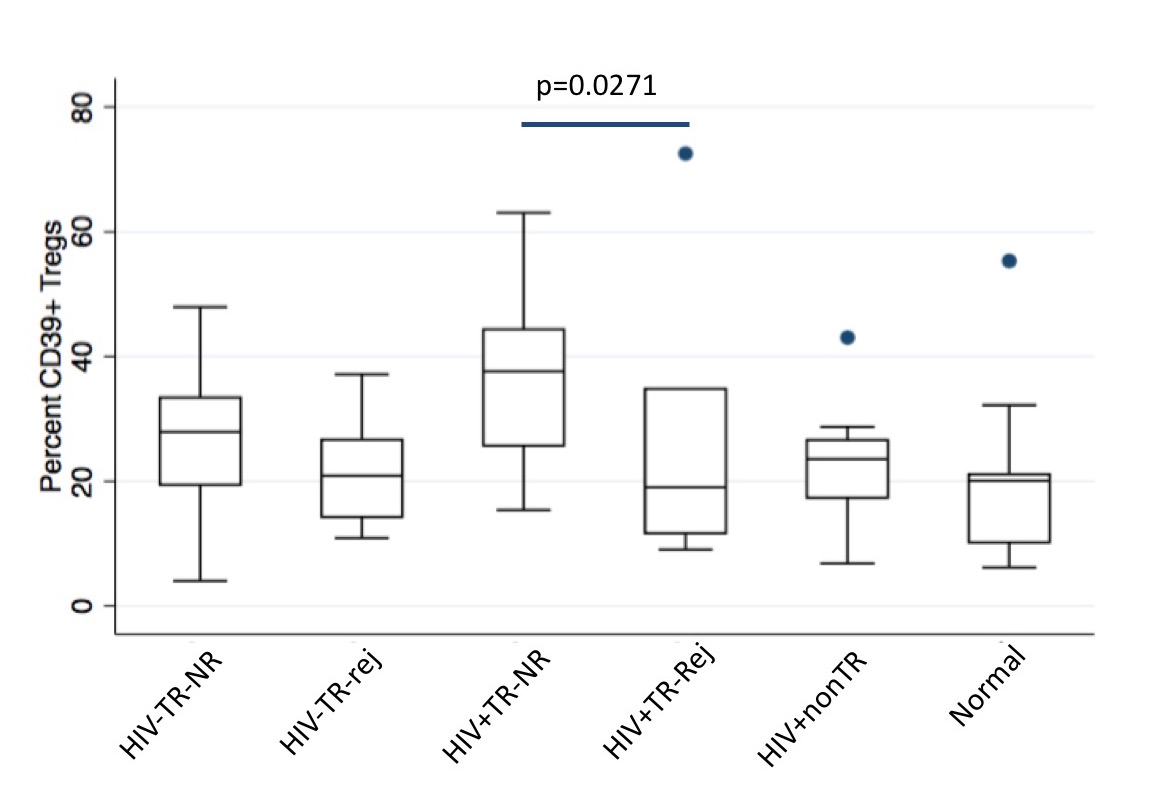Immune Activation and Rejection Risk in HIV-Positive Kidney Transplantation.
Division of Transplantation, University of California, San Francisco, San Francisco, CA
Meeting: 2017 American Transplant Congress
Abstract number: B12
Keywords: HIV virus, Kidney transplantation, Rejection
Session Information
Session Name: Poster Session B: Acute and Chronic Rejection
Session Type: Poster Session
Date: Sunday, April 30, 2017
Session Time: 6:00pm-7:00pm
 Presentation Time: 6:00pm-7:00pm
Presentation Time: 6:00pm-7:00pm
Location: Hall D1
Purpose: HIV+ kidney transplant recipients experience higher rates of rejection episodes when compared to HIV- recipients. We hypothesize that this early, aggressive rejection is associated with a dysregulated immune system as a result of chronic HIV infection. This study aims to identify specific pre-transplant immunological markers associated with risk of rejection.
Methods: We are using flow cytometric analyses to profile banked, pre-transplant peripheral blood mononuclear cell samples from HIV+ kidney transplant recipients (HIV+TR) in comparison to HIV- transplant recipients (HIV-TR), HIV+ non-transplant patients (HIV+nonTR), and normal subjects without HIV or ESRD. A total of 25 to 50 subjects in each group are planned and we are reporting preliminary findings of the first 12 per group analyzed thus far. Three multicolor flow cytometric panels are used to characterize leukocyte subsets, T cell phenotype and activation marker expression.
Results: When compared to HIV+ transplant recipients without rejection (HIV+TR-NR), HIV+ kidney rejecters (HIV+TR-Rej) have lower expression of HLA-DR on their monocytes. The decreases in HLA-DR mean fluorescence intensity (MFI) were significant on CD14+CD16– classical (p=0.031), CD14+CD16+ intermediate (p=0.0042), and CD14–CD16+ nonclassical (p=0.031) monocytes. In contrast, HLA-DR MFI on B cells is significantly higher on HIV+TR-Rej when compared to HIV+TR-NR (p=0.016). Finally, while the percentages of Tregs did not differ between groups, HIV+TR-Rej have lower percentages of CD39+ activated Tregs, when compared to HIV+TR-NR (p=0.0271).
Conclusion: Our results thus far suggest that HIV+ kidney transplant recipients who subsequently experienced rejection episodes may be distinguished by pre-transplant activation status of monocyte, B cell, and Treg populations. 

CITATION INFORMATION: Wisel S, Shaw B, Lee L, Lee K, Leung C, Stock P, Tang Q. Immune Activation and Rejection Risk in HIV-Positive Kidney Transplantation. Am J Transplant. 2017;17 (suppl 3).
To cite this abstract in AMA style:
Wisel S, Shaw B, Lee L, Lee K, Leung C, Stock P, Tang Q. Immune Activation and Rejection Risk in HIV-Positive Kidney Transplantation. [abstract]. Am J Transplant. 2017; 17 (suppl 3). https://atcmeetingabstracts.com/abstract/immune-activation-and-rejection-risk-in-hiv-positive-kidney-transplantation/. Accessed February 17, 2026.« Back to 2017 American Transplant Congress
